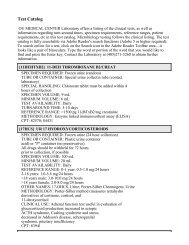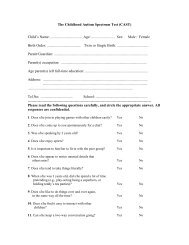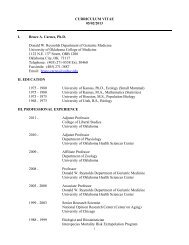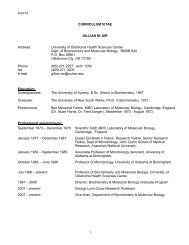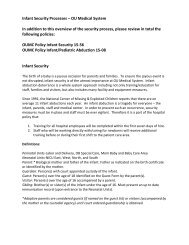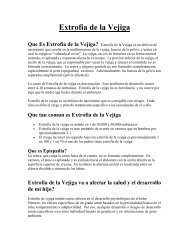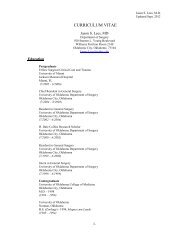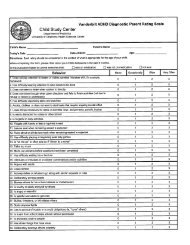Communities Advancing Resilience Toolkit (CART ... - OU Medicine
Communities Advancing Resilience Toolkit (CART ... - OU Medicine
Communities Advancing Resilience Toolkit (CART ... - OU Medicine
You also want an ePaper? Increase the reach of your titles
YUMPU automatically turns print PDFs into web optimized ePapers that Google loves.
Soliciting<br />
Probing<br />
Providing alternative responses that can be effective after<br />
summarizing what has already been said such as, “What do<br />
the rest of you think?”<br />
Making statements that draw out a participant, gather<br />
additional information related to a response, or clarify or<br />
correct misunderstandings. Examples of probing are: “Can<br />
you tell me more?” and “Are there other examples?”<br />
Participant types. The facilitator should recognize and be comfortable managing various<br />
role types that are often evident in groups. These include, for example:<br />
• The caregiver who wants to take care of everyone and does not like any<br />
conflicting opinions. This person tries to rescue those who are uncomfortable.<br />
• The rambler who goes off topic and never gets to the point.<br />
• The uncooperative and hostile person who does not want to be there and lets<br />
everyone know it. This type will challenge the facilitator.<br />
• The superior person who is judgmental and acts as if he/she is better than other<br />
participants. This person will attempt to dominate weaker members of the group.<br />
• The withdrawn person who is content to listen only, without contributing.<br />
• The cooperative person, who is both a good listener and contributor, is a joy to<br />
have in the group.<br />
Human subjects protections. You should not need to collect personal health information.<br />
If you decide to do so, you will need to work with a recognized institutional<br />
review board to ensure that human subjects protections (including<br />
consent processes) are in place. When using consent forms, the<br />
facilitator should review confidentiality concerns and<br />
requirements at the beginning of the session. Every effort<br />
should be made to protect participant identities. Only first<br />
names should be used in the session. Nonetheless, with<br />
community conversations, it is impossible to guarantee<br />
confidentiality.<br />
<strong>Communities</strong> <strong>Advancing</strong> <strong>Resilience</strong> <strong>Toolkit</strong> (<strong>CART</strong>) Page 28



